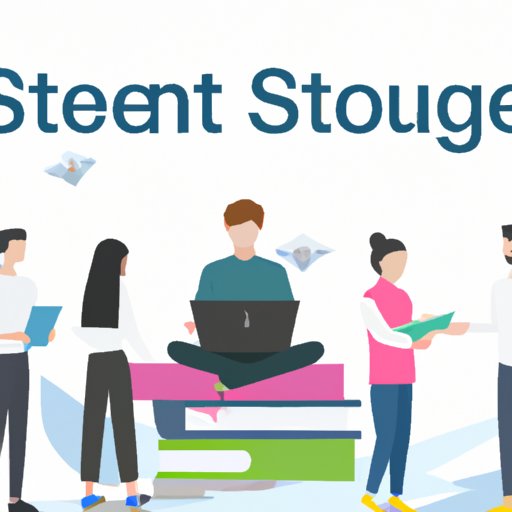
I. Introduction
Student loan debt is a major problem facing students and recent graduates today. It can cause financial stress and limit opportunities for future growth and success. However, there are many options available for students seeking financial support for their education. The purpose of this article is to educate students on the various types of student loans, the application process, repayment options, forgiveness programs, and private loan alternatives.
II. Conduct Research on Available Student Loans
It is important for students to conduct thorough research when considering different student loan options. Federal and private loans have different pros and cons that can affect a student’s future financial situation. To find reliable information, students can visit government websites, speak to financial aid counselors, and read reviews from other students who have used different loan providers.
III. Know the Application Process
The application process for student loans can be overwhelming, but it’s important to start early and make sure all necessary documents are prepared. For federal loans, students need to fill out the Free Application for Federal Student Aid (FAFSA) and submit it before the deadline. Private loans require applying directly to a lender and may have additional requirements, such as a co-signer or credit check.
IV. Understand Repayment Options
After graduation, students will need to start repaying their loans. It’s crucial to understand the different repayment options available and choose the best one based on individual financial circumstances. Income-driven repayment plans, forbearance, and deferment options can help make the payments more manageable. However, it’s important to stay current on payments to avoid negative consequences for credit scores.
V. Explore Student Loan Forgiveness Programs
There are many student loan forgiveness programs available for students in specific fields, such as teaching or healthcare. It’s important to research eligibility requirements and consider the possible benefits and drawbacks before committing to a career path.
VI. Seek Guidance from Financial Professionals
Students may benefit from consulting with financial professionals, such as loan counselors or financial aid advisors. These professionals have specialized knowledge and can provide personalized advice on loan options and repayment strategies. It’s important to research and choose a reputable advisor to ensure the best outcomes.
VII. Investigate Private Loan Alternatives
Private loan alternatives such as peer-to-peer lending services or student loan companies may be an option for students who exhaust all other options. However, it’s important to understand the potential consequences and risks associated with private loans. Some lenders may have high-interest rates or predatory practices. Students should carefully consider the terms and make a decision based on their own individual financial goals and needs.
VIII. Conclusion
Student loans are an investment in the future and can provide necessary support for achieving educational goals. However, it’s important for students to conduct research, understand the application process, repayment options, forgiveness programs, seek guidance from financial professionals, and consider private loan alternatives before making a decision. With the proper knowledge and resources, students can make informed decisions that will facilitate their future financial success.




